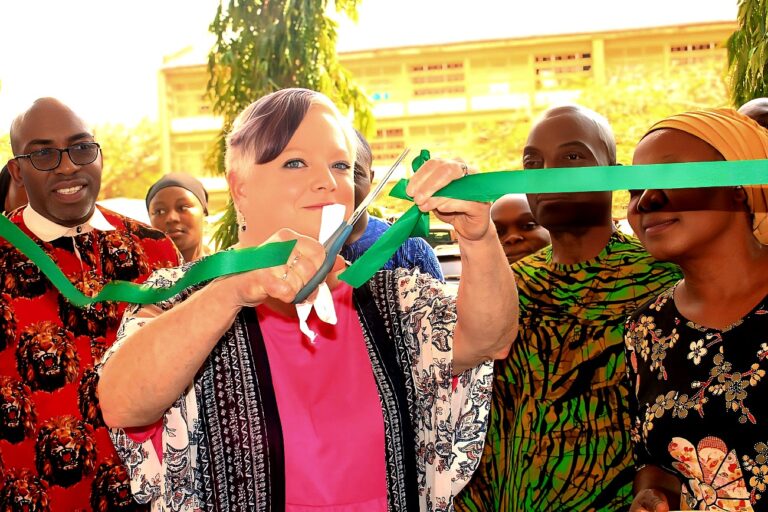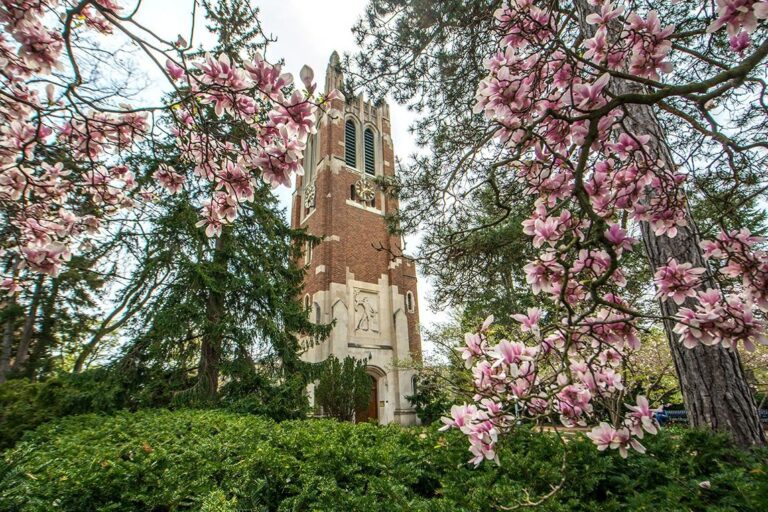Hundreds of educators, activists, community partners, and writers from across the country will gather in Detroit this month for the Conference on Community Writing, a national, biennial event dedicated to using writing as a tool for social change. For the first time, the conference will be held in the Midwest and co-hosted by Michigan State University’s Department of Writing, Rhetoric, and Cultures (WRAC) and Wayne State University’s English Department.
Founded by the Coalition for Community Writing, the conference offers a diverse range of programming, including keynote speakers, workshops, and intensive sessions for collaborative problem-solving and discussion. The 2025 theme, “Designing Justice in Space, Place, and Time,” reflects the conference’s focus on collaborative, community-rooted processes for creating change.
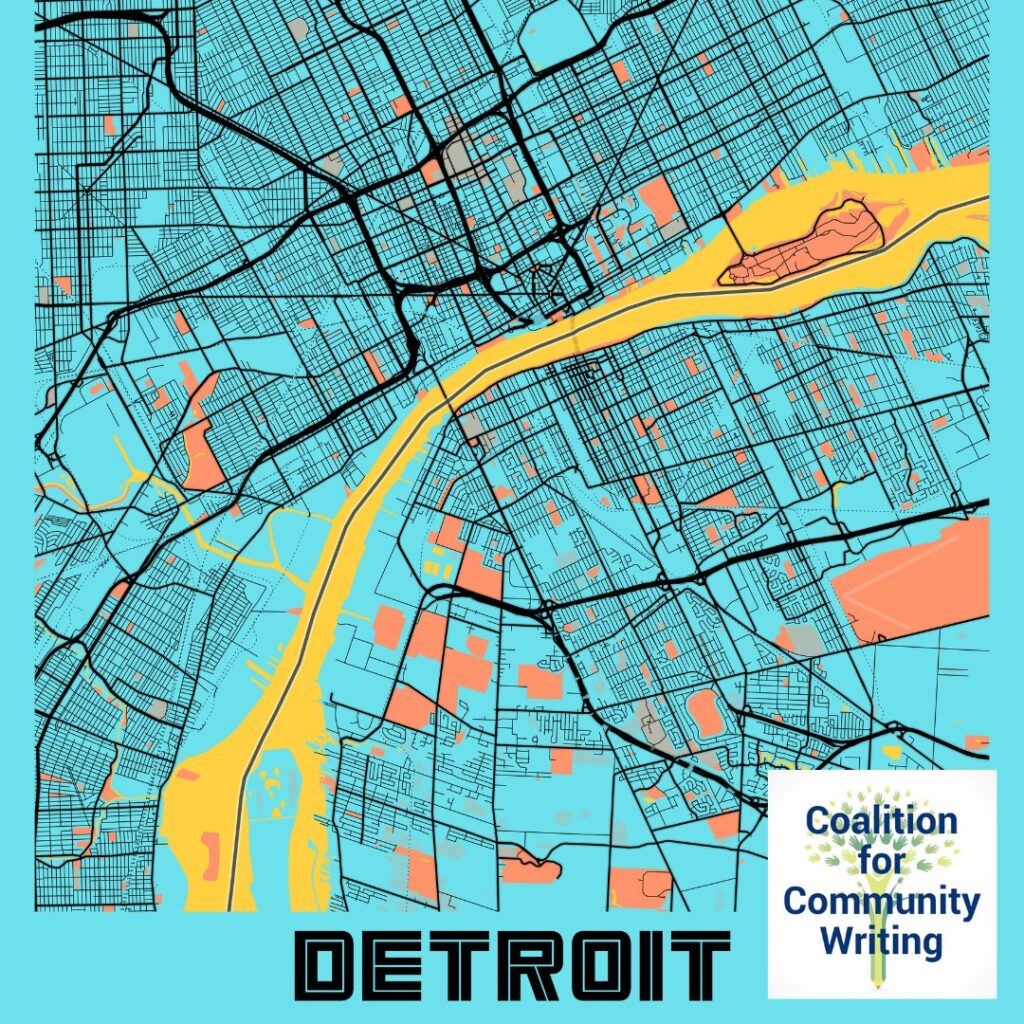
By co-hosting the 2025 Conference on Community Writing, WRAC affirms its role as a leader in community-engaged scholarship, says Joyce Meier, WRAC Professor and Associate Director of MSU’s First-Year Writing Program, who is co-directing this national event that will take place Oct. 23-25, 2025, at the Wayne State University Student Center.
The concept of “community writing” is intentionally broad. As Meier described it, “Community writing is when universities or other academic institutions partner with community members or community organizations to help make change happen.”
That change can take many forms: university students writing oral histories with elders, faculty supporting nonprofits with grant proposals or public communications, incarcerated individuals composing poetry and memoirs in partnership with college students, and artists creating public storytelling projects in neighborhoods. For instance, Meier taught a community publishing course where students worked with Lansing-area nonprofits to promote events, raise funds, and secure resources. One of those projects supported an organization finding beds for people experiencing homelessness.
“There’s just all kinds of work that happens when universities and community partners work together to figure out how they can support each other,” Meier said. “What happens is there’s an exchange of what I call gifts…the community partners gain the writing expertise of faculty and their students, but then also, on the other side, people here at the university, we gain lots of experience and knowledge and interest in our community partners.”
For Meier, this exchange is the essence of the field: “When you use writing as a tool for social change, that’s community writing.”
“When you use writing as a tool for social change, that’s community writing.”
Dr. Joyce Meier
The Detroit conference will feature keynote presentations that illustrate the transformative potential of writing in community contexts, and there will be think tanks, which are participatory, action-oriented working sessions, focused on critical social and environmental issues, that are designed for collaborative problem-solving and facilitated by scholars and community leaders. Topics include grant writing, community-based participatory research, and entrepreneurial collaborations.
While faculty and community leaders anchor much of the programming, undergraduates are a central focus. A special Saturday schedule will highlight student presentations, from poster sessions to creative projects. To encourage participation by students, organizers created an affordable one-day registration option. The Saturday-only registration is $30.
It Takes a Team
Since its inception, the Conference on Community Writing has rotated across U.S. cities, with past gatherings in Boulder, Philadelphia, Denver, and Washington, D.C. For Meier, helping to bring the conference to Detroit reflects both her long-standing commitment to community-engaged writing and the WRAC Department’s leadership in supporting writing as a force for social change.
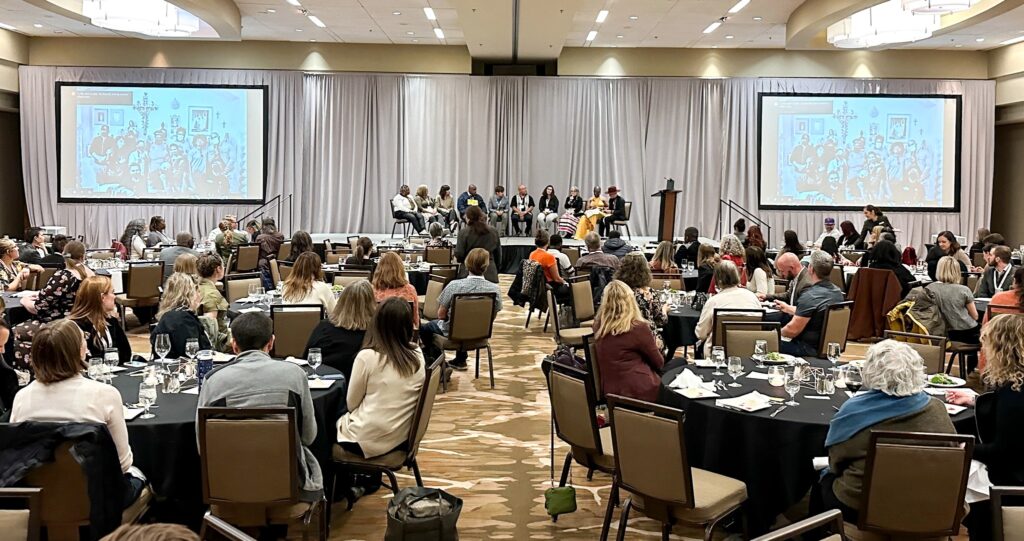
The proximity of the conference also has enabled a range of MSU students and faculty to become involved. Students, faculty, and alums will not only participate in sessions, many were instrumental in shaping the conference’s framework.
“We are featuring a lot of Michigan State people, and there are a lot of people in our writing program involved in the conference,” Meier said.
The planning for the conference has involved WRAC faculty, students, and alums as well as Wayne State partners and national leaders from the Coalition for Community Writing.
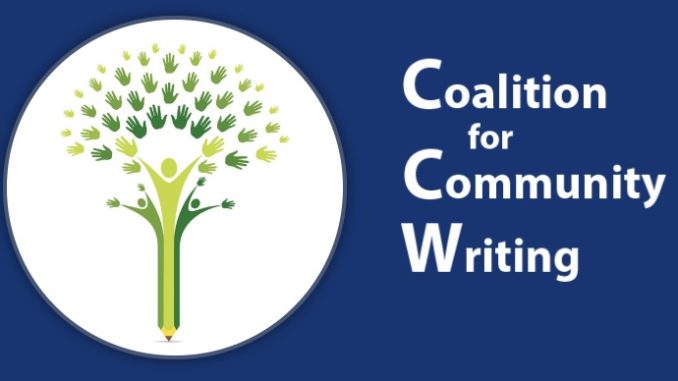
Besides Meier, other WRAC faculty members who have played key roles in the conference planning are Assistant Professors Casey McArdle and Bree Straayer, both serving as co-facilitators of the think tank. Kate Sonka, Executive Director of Teach Access and an MSU alum with a B.A. in Spanish, and Paul Jacques, Managing Director for Venture Creation for the Burgess Institute for Entrepreneurship at MSU, are collaborating on the “Designing Change” think tank with community partners from Detroit. Another MSU alum, Donnie Johnson Sackey, Associate Professor in the Department of Rhetoric and Writing at the University of Texas at Austin who earned his Ph.D. in Rhetoric and Writing from MSU, is one of the conference’s keynote speakers.
MSU students also have played key roles, from creating accessibility guides to drafting funding proposals. Nicole Hinman, a visually impaired graduate student in the M.A. in Rhetoric and Writing program, worked with peers to draft the first version of the conference accessibility guide, material that later informed the finalized guide prepared by Wayne State organizers. Stephen Brooks, a graduate student in the M.A. in Arts, Cultural Management, and Museum Studies program, is developing a Detroit restaurant guide, ensuring visitors can navigate the city’s food scene with accessibility and inclusivity in mind. Another graduate student, Sophia Maggio, drafted sponsor letters that conference organizers used to raise funds. And, three students from Meier’s 2024 community publishing class produced the “Welcome to Detroit” video featured on the conference website.
Designing Justice
The “Designing Justice” theme also was suggested by a student. Maggio proposed the theme that ultimately became the conference’s guiding framework.
Beyond programming details, the conference’s theme underscores a philosophy that the process of collaboration matters as much as the outcome.
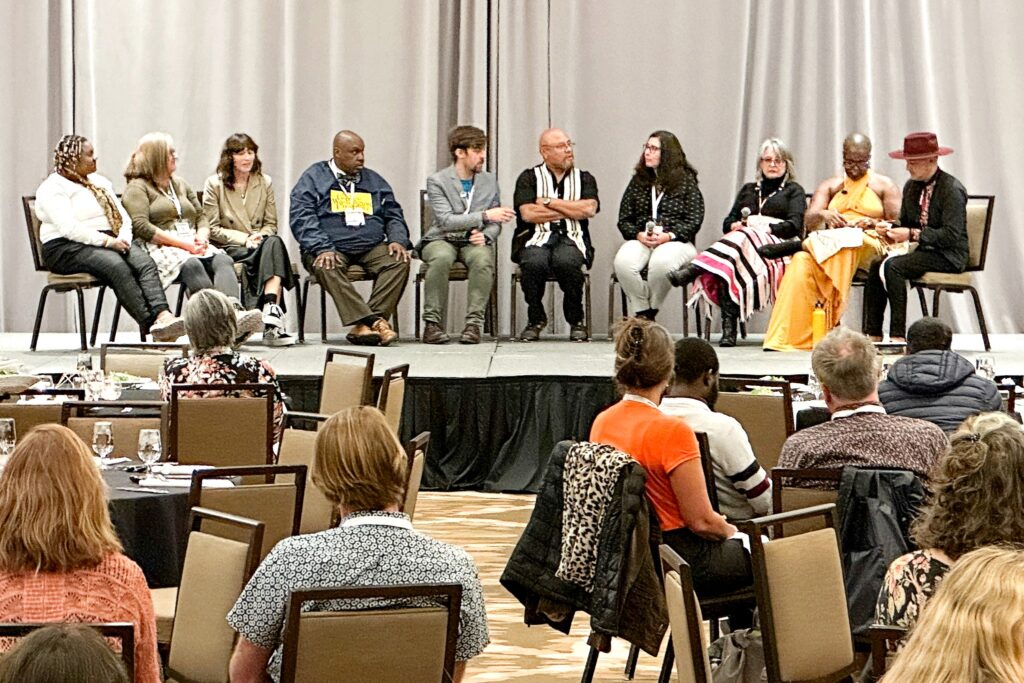
“We said ‘designing’ intentionally because how you design a community project has so much to do with how reciprocal it’s going to be, how mutually beneficial it will be for both parties involved,” Meier said. “You do things with people, not for people. Sage design is justice.”
This principle will be visible in projects showcased at the conference, including storytelling collaborations with elders in Detroit, accessibility initiatives shaped by students, and digital storytelling efforts that introduce the city to attendees.
For Meier, the most important outcome of the conference is not a particular presentation or lesson, but the sense of possibility and hope that participants take with them.
“In the current world we’re in,” she said, “I hope that together we can find ways to get through it, make things happen, make change happen, find justice.”
By Austin Curtis and Kim Popiolek

